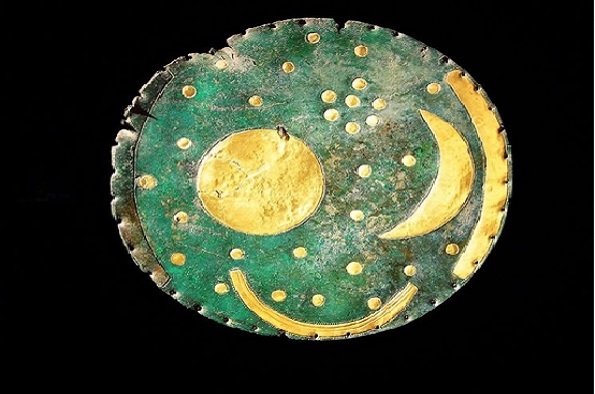
Public Lecture - The West is golden - The Enigma of the Bronze Age Nebra Sky Disc of Germany and the British connection
- Alan Williams
- Suitable for: All university staff, students and the general public.
- Admission: Admission is free.
Add this event to my calendar
Click on "Create a calendar file" and your browser will download a .ics file for this event.
Microsoft Outlook: Download the file, double-click it to open it in Outlook, then click on "Save & Close" to save it to your calendar. If that doesn't work go into Outlook, click on the File tab, then on Open & Export, then Open Calendar. Select your .ics file then click on "Save & Close".
Google Calendar: download the file, then go into your calendar. On the left where it says "Other calendars" click on the arrow icon and then click on Import calendar. Click on Browse and select the .ics file, then click on Import.
Apple Calendar: The file may open automatically with an option to save it to your calendar. If not, download the file, then you can either drag it to Calendar or import the file by going to File >Import > Import and choosing the .ics file.
Martin Luther University Halle-Wittenberg
This free lecture is open to all University staff, students and the public. It is arranged by the Ancient Economies Research Group in the Department of Archaeology, Classics and Egyptology.
New evidence for connections across Bronze Age Europe have emerged from the discovery of the unique Bronze Age Nebra sky disc found by metal detectorists in Germany in 1999. The disc dates from around 3,600 years ago and is made of bronze with gold and tin inlays depicting the moon and stars suggesting considerable astronomical knowledge. It is described by UNESCO as one of the most important archaeological finds of the 20th century. Prof. Borg will explore the fascinating story of the disc and describe how an interdisciplinary team of archaeologists, geologists and analysts, using the latest archaeological science techniques on the tin and gold, found a British connection suggesting long-distance exchange networks. The disc was featured in a recent BBC TV archaeological programme on the newly excavated Bronze Age settlement in the British Fenland and its possible European links
